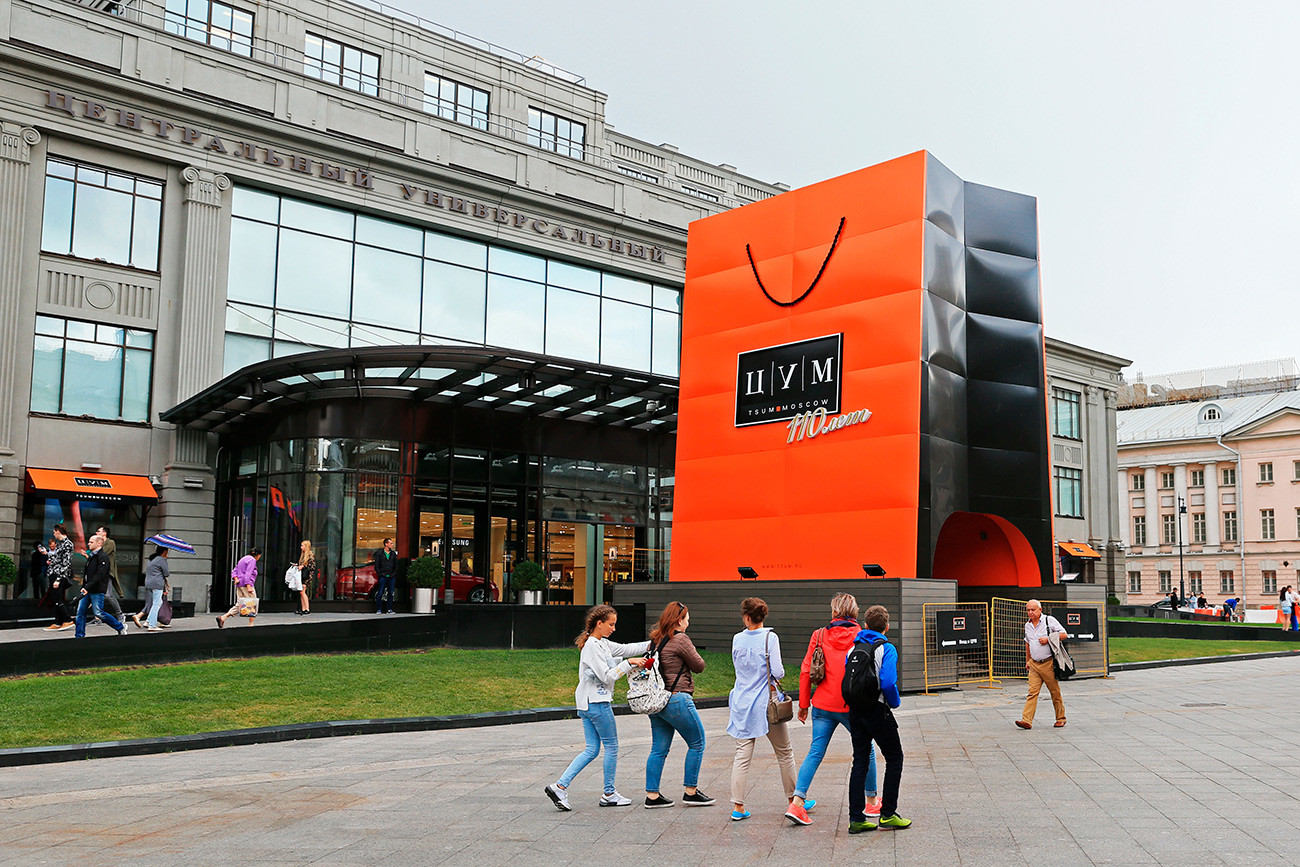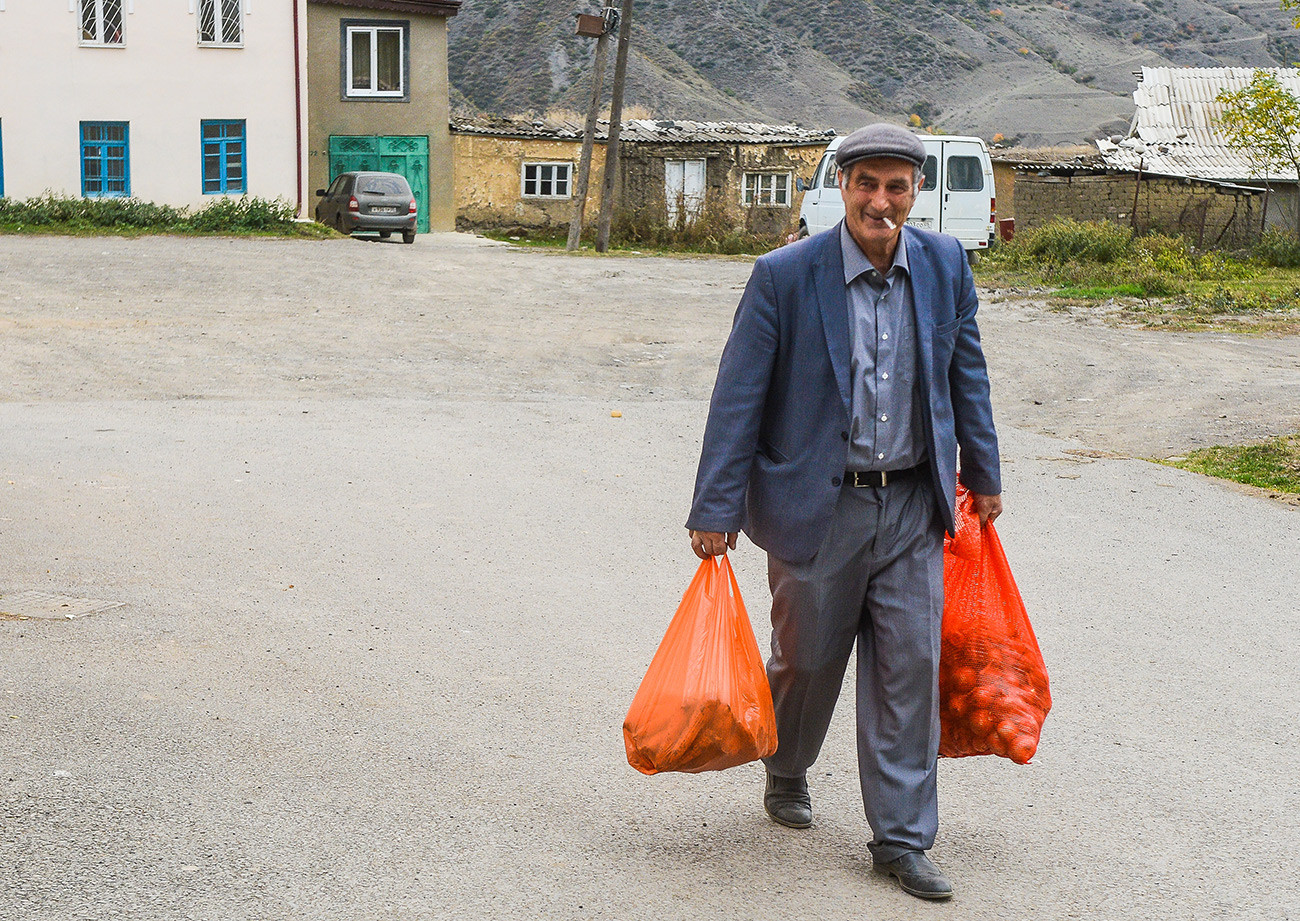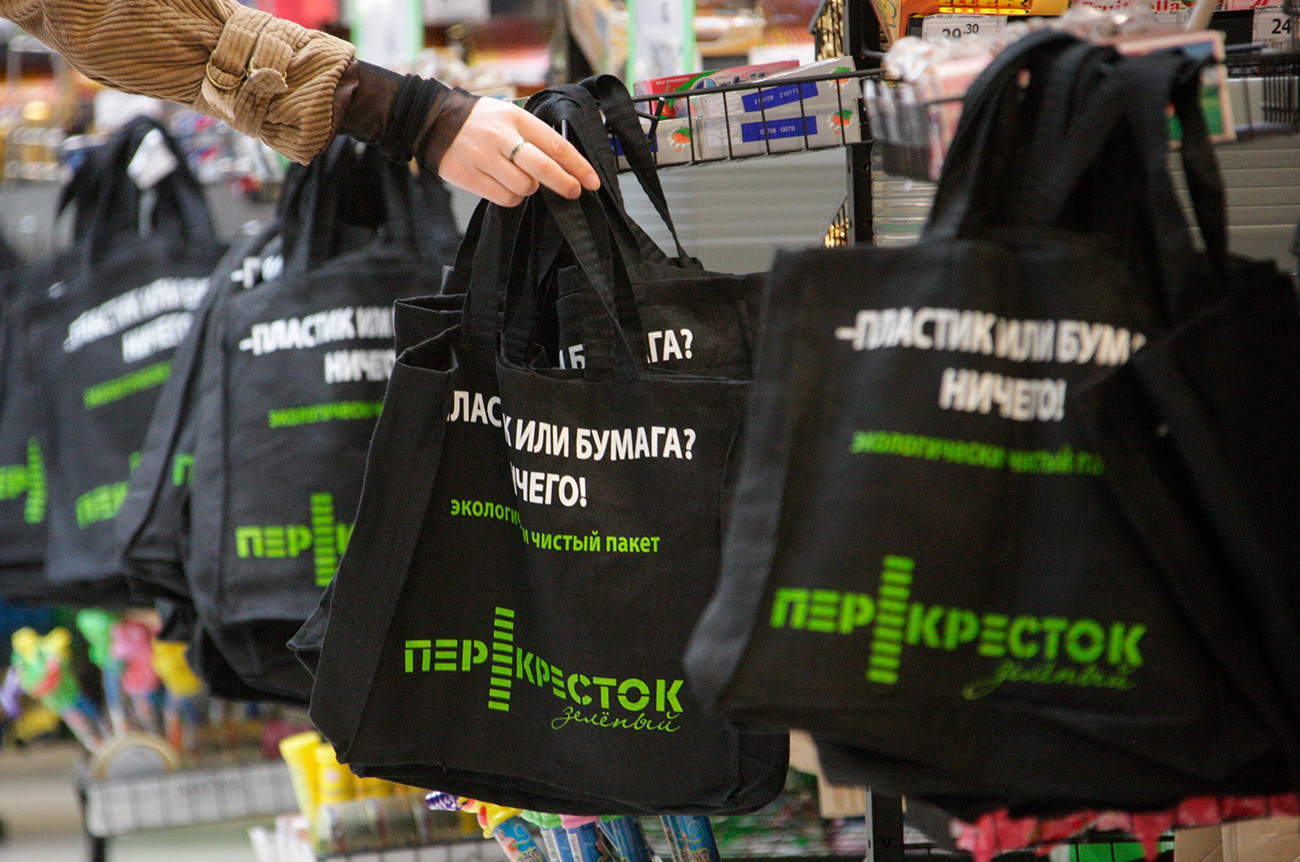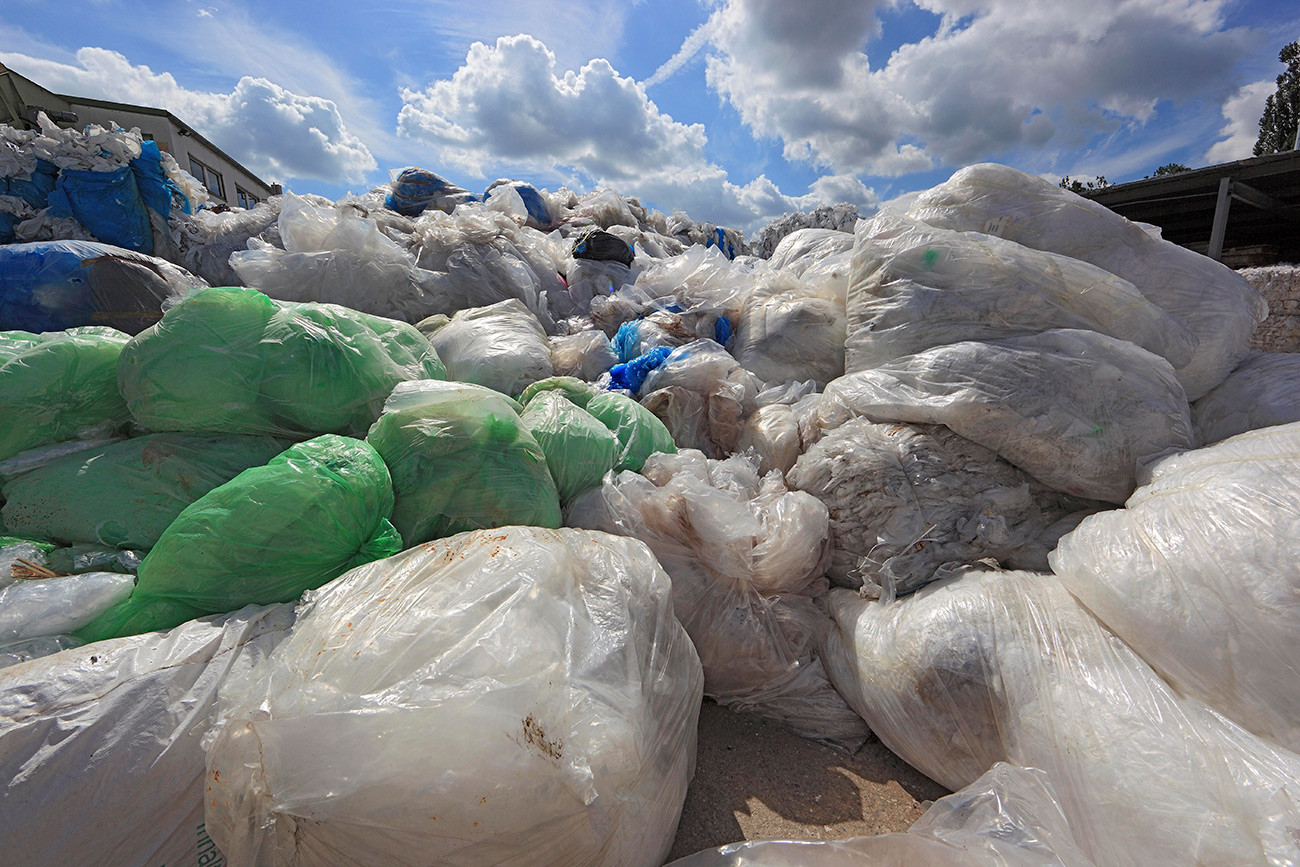Russia's dirty love affair with... plastic bags

Sadovod is Russia's biggest street market, located in the southeast of Moscow. The weather is hot and the place smells of sweat, hotdogs, and aroma oils. It’s also a plastic bag kingdom. All purchases – be it Chinese-made dresses, underwear, shawarmas (kebabs), or (allegedly) ‘authentic’ Kardashian cosmetics – are put in plastic bags.
Between endless rows of clothes and shoes, there are some smaller stalls. One of them sells plastic bags with logos of famous stores, from Chanel to H&M. They flutter in a gentle wind. A short, slightly overweight, brown-haired woman in her mid-40s stands near the stall, choosing between a D&G and a Fendi bag, 30 rubles ($0.46) each.
"What do you need a plastic bag for?" I ask her.
"To carry my lunch and umbrella when I go to work. They don’t fit into my handbag," she replies, pointing to her handbag the size of a small notebook.

9-meter pavilion in the form of a glossy orange package at the main entrance to the store TSUM
Anton Denisov/Sputnik"Why don't you buy a larger handbag or carry a fabric bag instead of a plastic one?" I suggest.
"Bah! Next you will suggest I go to work with a trolley case," she responds angrily, grabs her D&G plastic bag, throws money on the till and disappears into the crowd.
The seller explains that counterfeit plastic bags of famous brands are no less popular than counterfeit goods of those brands. In addition, many people buy these bags to put presents in them.
"But what about the environment?" I ask, realizing full well how out-of-place this question sounds.
"And what about the environment? It is more important for people to hide the fact that they do not have money to buy expensive clothes," she replies.
Too expensive to save the planet
According to a poll by the Russian Public Opinion Research Center (VTsIOM), 85 percent of Russians are ready to give up the use of plastic bags, completely or partially.
However, giving up plastic bags altogether is still a distant prospect. For Russians, this is first of all a matter of habit and convenience.
"And what else to take out the garbage in, if not in plastic bags? In buckets, like we used to? And then wash them? No, thank you very much!" says Yevgenia Zubova, 35, a hairdresser.

Some people simply forget to carry a bag with them and have to put their shopping into new plastic bags every time they go to a supermarket.
"We have plenty of net bags at home, so we use them when we go shopping. But at the same time, plastic bags still make their way into our house, like when you go shopping not from home, but buy something on the way and do not have a bag with you," says Polina Zhushman, a user of Vkontakte, a popular Russian social network.
Another problem with switching to paper bags or eco bags is their high cost, says student Eduard Klichnikov, 22.
"Financially, Russia is not ready to switch to eco bags completely, not everyone has money for them. Why not make them cheaper? Not 15-50 rubles each, but, say, 5-10 rubles,” he wonders.
Irina Tikhonova, a 50-year-old secretary from Moscow, agrees. She uses durable plastic bags as a replacement for regular bags, and reuses almost all small plastic bags many times until they are torn.
"Back in the Soviet Union, all products — butter, for example — were wrapped in paper packaging, and for free. And what happens now? With such a price for these eco bags of yours - to hell with the environment!" she proclaims.
Eco bag switchover
Sofia Logvinova, an activist with the environmental movement Waste Sorting, is convinced that people simply do not have enough information to consider the serious impact that plastic bags have on the environment.
"For some, it is enough to learn that one person uses hundreds of plastic bags a year, which take 200-300 years to decompose. While others need to ponder the issue, read about microplastics or about Coca-Cola producing 200,000 bottles per minute. Each requires an individual approach," she says.
Two years ago, Dina Khitrova, a Facebook user from Yekaterinburg, replaced her plastic bag stuffed with old plastic bags with an eco bag stuffed with eco sacks that she sews herself.

In the premium-class supermarket "Green Perekrestok" in the Udaltsova street
Marina Lystseva/TASS"Within walking distance there are not only chain stores, but also small kiosks selling vegetables, fruit, bread, etc. I think I may have become a bit of a local attraction - sometimes at the checkout I hear people say: 'Oh, and where did you get these little sacks from?' or 'Food probably keeps better in them and they do not steam up'," she writes on her Facebook page.
Dina says she is already beginning to feel that people want to follow her example.
"I admit that in Russia, this is a new topic and not yet a popular one. <...> Well, maybe someday these people will want to switch to eco bags as well. The main thing is being a living example!"

Large Russian retail chains support the idea of giving up the use of plastic bags. In late May 2019, Russian supermarket chain Pyaterochka launched the sale of reusable linen bags and paper bags in major Russian cities. Earlier, other large retailers, such as Vkusvill, Auchan and Azbuka Vkusa started charging money for their plastic bags and encourage their customers to buy reusable bags.
Finally, in April, the State Duma proposed banning the use of plastic bags in Russia from 2025.
If using any of Russia Beyond's content, partly or in full, always provide an active hyperlink to the original material.
Subscribe
to our newsletter!
Get the week's best stories straight to your inbox